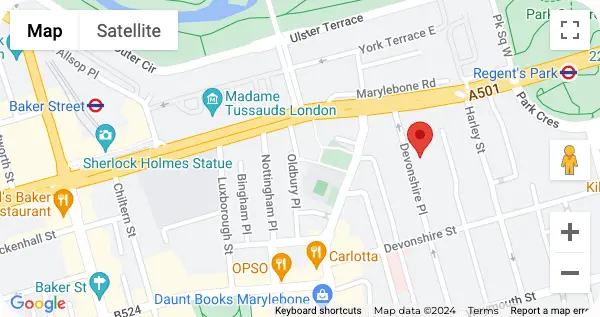Condition: Iron Deficiency
Iron deficiency symptoms
& causes

Dermatological
Non-surgical
Surgical
Body Concerns
Health & Wellness
Skin & Face
Expert care for a wide range of skin conditions, ensuring healthy, radiant skin.
Lesions & Bumps
Comprehensive care for skin lesions and bumps, promoting clear and healthy skin.
Lifting & Tightening
Advanced treatments to lift and lighten the skin, enhancing firmness and brightness.
Rejuvenation
Revitalize your skin with advanced treatments designed to restore a youthful glow.
Skin Treatments
Effective solutions for a variety of skin concerns, promoting clear and healthy skin.
Wellness
Holistic skincare approaches to support overall skin health and well-being.
Advanced, non-invasive treatments to rejuvenate your appearance without surgery.
Body Treatments
Transformative, non-invasive treatments to sculpt and tone your body effortlessly.
Facial Treatments
Rejuvenating facial treatments to refresh and enhance your natural radiance.
Hair Treatments
Advanced treatments to restore hair vitality and promote healthy growth.
Injectables
Minimally invasive injectables to smooth wrinkles and enhance facial contours.
Precision cosmetic surgery tailored to enhance and refine your natural beauty.
Body Surgery
Expertly performed body surgeries to reshape, contour, and enhance your physique.
Breast Surgery
Specialized breast surgeries to enhance shape, size, and symmetry for a natural look.
Cosmetic Andrology
Advanced procedures designed to enhance male aesthetics and address intimate concerns.
Cosmetic Gynaecology
Tailored surgical solutions to enhance feminine aesthetics and improve intimate well-being.
Facial Surgery
Precision facial surgeries to refine features and achieve natural, balanced results.
Fat Transfer/Removal
Advanced fat transfer and removal techniques to sculpt and enhance your body’s contours.
Comprehensive solutions to address a range of body concerns, from stubborn fat to skin laxity.
Breasts
Tailored solutions for breast concerns, including size, shape, and symmetry.
Other Areas
Targeted solutions for stubborn areas of the body, tailored to your unique needs.
Volume & Contouring
Specialized treatments to enhance body volume and improve overall contour for a balanced silhouette.
Holistic care focused on improving overall health and well-being for a balanced lifestyle.
Digestive Health
Comprehensive care to support digestive health and improve overall well-being.
Energy & Immunity
Holistic approaches to boost energy levels and strengthen your immune system for optimal health.
General Health
Personalized strategies to maintain and enhance your overall health and vitality.
Expert care for a wide variety of skin and facial concerns, promoting a healthy, glowing complexion.
Ageing Signs
Expert treatments to minimize ageing signs, rejuvenating your skin for a youthful glow.
Skin Texture & Tone
Advanced treatments to improve skin texture and even out tone for a smoother, radiant complexion.
Specific Areas
Targeted treatments to address skin concerns in specific facial areas for balanced, refined results.
Volume & Contouring
Tailored solutions to restore facial volume and enhance natural contours for a more youthful appearance.

What is Iron deficiency?
Feeling tired or weak? If so, your hemoglobin could be low from anemia. Iron deficiency anemia is when you don’t have enough iron in your body to make hemoglobin, which carries oxygen in your blood. Without sufficient iron, your body can’t work well.
The good news is it can be fixed with iron-filled foods or supplements, and you can get better and stronger. To restore your iron levels, you should consult a doctor to treat iron deficiency anemia and restore your hemoglobin to normal levels.
Iron deficiency anemia occurs when your body is low in iron, and it develops in three stages:
Even while resting, your body still may be fatigued.
If you lack red blood cells, your skin might look pale.
You may have some shortness of breath, particularly with activity.
Becoming lightheaded or faint when you stand.
You may find your hands and feet are cold more frequently.
This could make you get headaches, because your body isn’t receiving enough oxygen.
Your nails might become brittle and break frequently.
You may also have an appetite for non-food substances like ice, dirt or starch.
If you’re exhibiting signs of iron deficiency, you should speak to a doctor. Iron levels are easy to check, your doctor can order a standard blood test to see if you’re running low. If your levels are normal, the doctor may look for other potential causes of your symptoms, so it’s best to collaborate for an accurate diagnosis.
It normally takes 1 to 2 months for the iron level to normalise with treatment. For those unable to take iron supplements, other treatment options exist. Sometimes, some added treatments are needed to effectively restore the iron levels.
What are the underlying causes of iron deficiency?
Certain groups of people are at increased risk for iron deficiency anemia:
Mild iron deficiency anemia is often asymptomatic but serious health problems may form if it is not managed.
Iron is needed in sufficient amounts in our diet, so a heavy diet with iron or absorbed iron foods like beans, spinach, cereals and lean meat keeps your iron levels under the healthy range. Animal sources of iron (meat) are more easily absorbed by your body, but plant sources aren’t bad either when combined with vitamin C.
Improve your iron absorption
Eating vitamin C rich foods (like oranges or tomatoes) can help your body absorb iron in a better way.
You might require iron tablets if you’re at risk of iron deficiency, for instance, during pregnancy, or if you have heavy periods. And you need to run it by your doctor before you take them.
Help restore iron levels quickly
You can take supplements that help you get an increase in the iron you have. Make sure you follow your doctor’s advice so you don’t take too much iron, and to help your body replenish its iron stores gradually.
Even foods that you might be eating daily, such as tea, coffee, dairy or some grains, can have a negative effect on iron absorption in the body. Do not take them immediately after meals high in iron.
Things that inhibit the absorption of iron
Iron-rich foods should be eaten several hours before and after foods that inhibit absorption. Which helps your body to absorb as much iron as possible.
Heavy periods and internal bleeding can deplete your iron. These are serious conditions and need to be treated so you don’t bleed out.
See a doctor for excessive blood loss
If you are bleeding too much consult your physician to get the cause and prevent iron deficiency anemia.
Routine blood work can check your iron levels and catch signs of deficiency early. This stops it from becoming something more problematic.
Annual iron test
If you’re at a higher risk, you should check your iron levels at least once a year. If you are worried, ask your doctor how often you should be screened.











David Perkins
Saw Dr Omar who was great, friendly and professional.
Gillian And Bill McLeod
Wonderful consultation with Lesley!

Yasmin Juma
Very good service
Frida Carlow
Great treatment! Very helpful receptionist!
Mariana O.
The best clinic !

Prabs Rai
Painless and very reassuring

Robin Saxen
Very welcoming and informative.
Judith Durham
Very helpfull and amazing expirence

Ivelina Mileva
Fast, professional service with excellent quality!
Sarah Conners
Very professional and excellent care. Lovely premises.
59,645
Happy patients served.
Need to reach us?
Contact or visit our clinic.
We're based in central London at the historic 14 Devonshire Pl which is only a short 2 minute walk from Regents Park tube station a 10 minute taxi journey to Kings Cross, and St Pancras stations.
We're open Monday - Friday 8am - 8pm, and Saturdays 9am - 5pm, feel free to drop in to talk to a member of our team where they can answer any of your questions.
Alternatively book a free consultation, request a callback, or call us on 0207 4364441.
